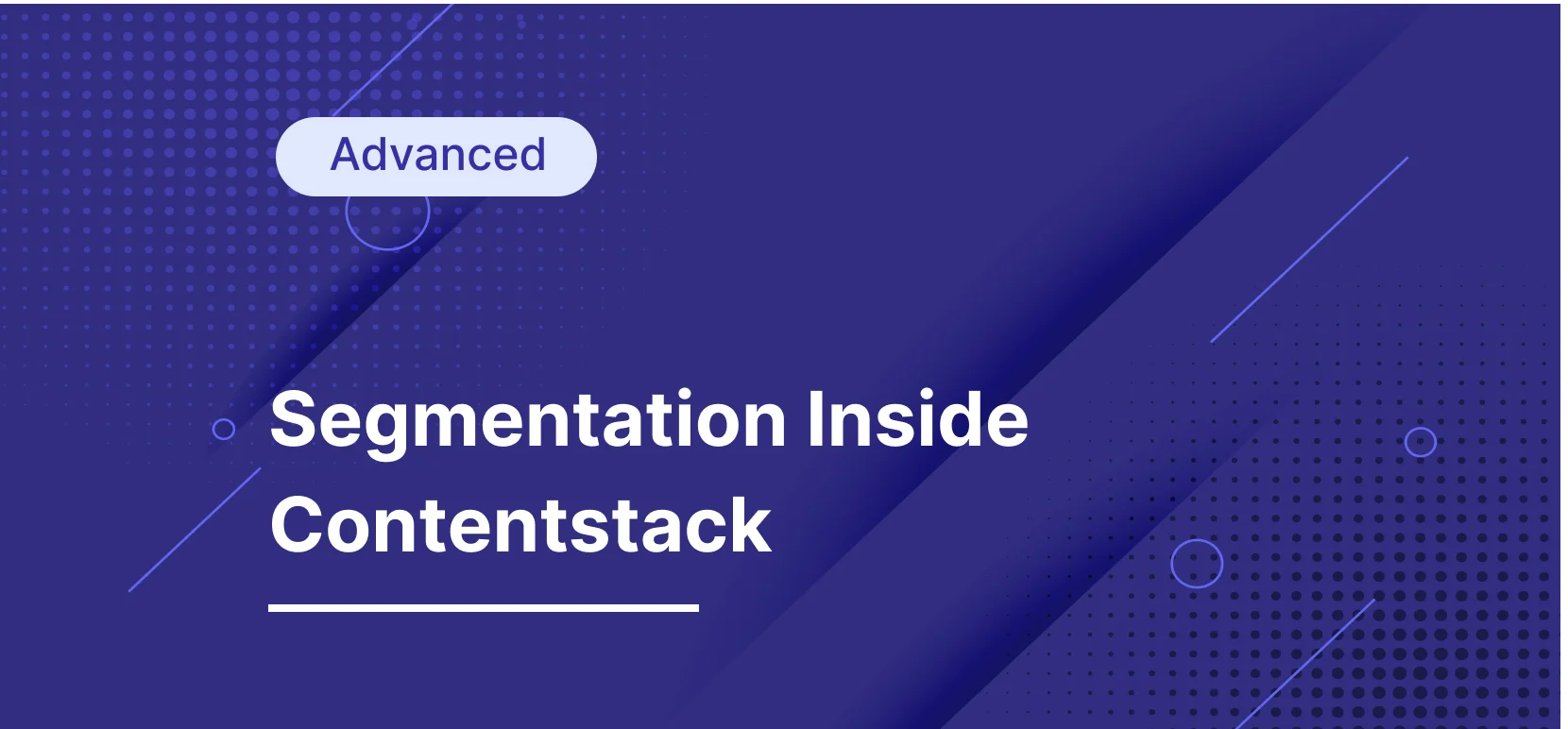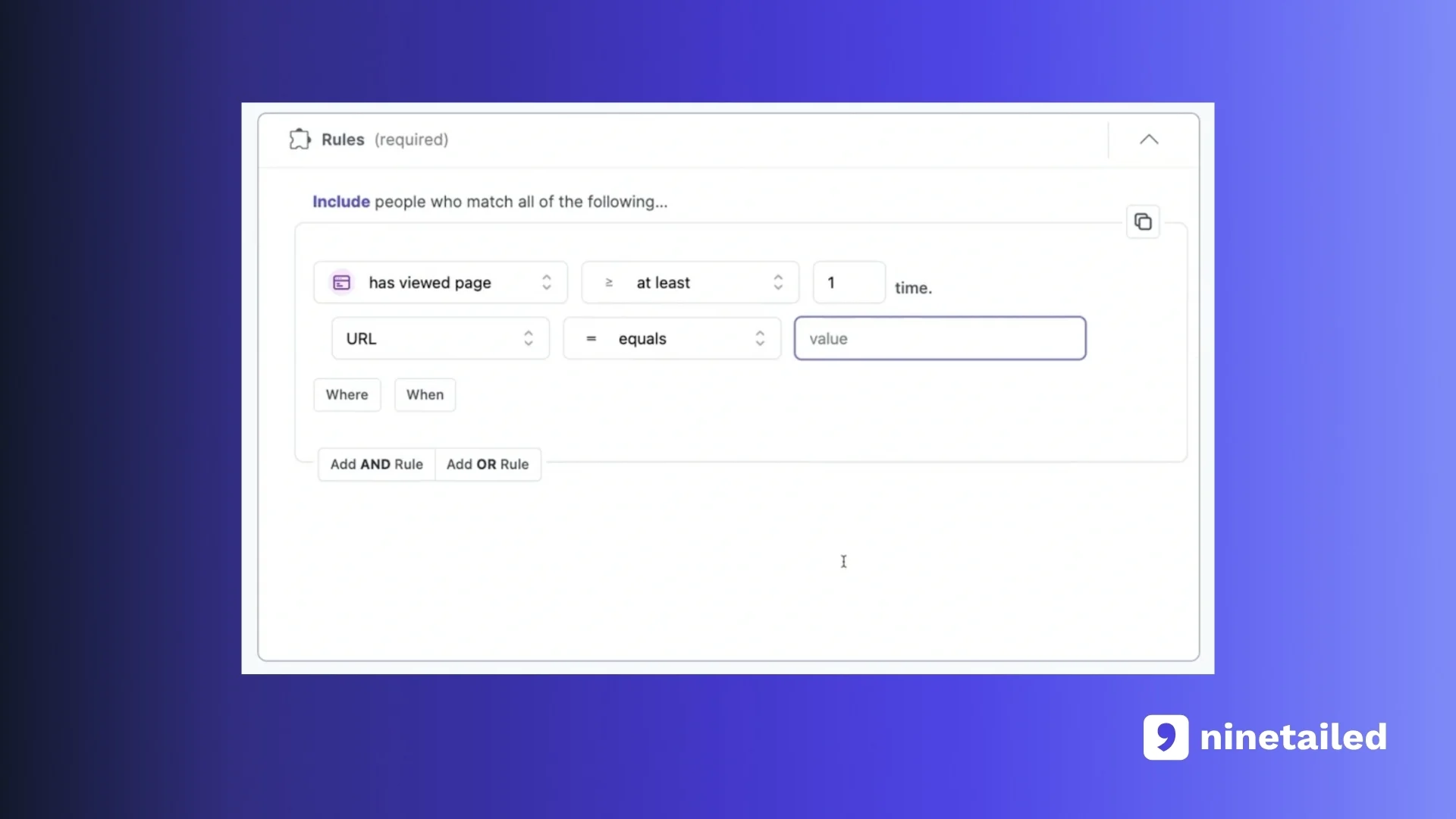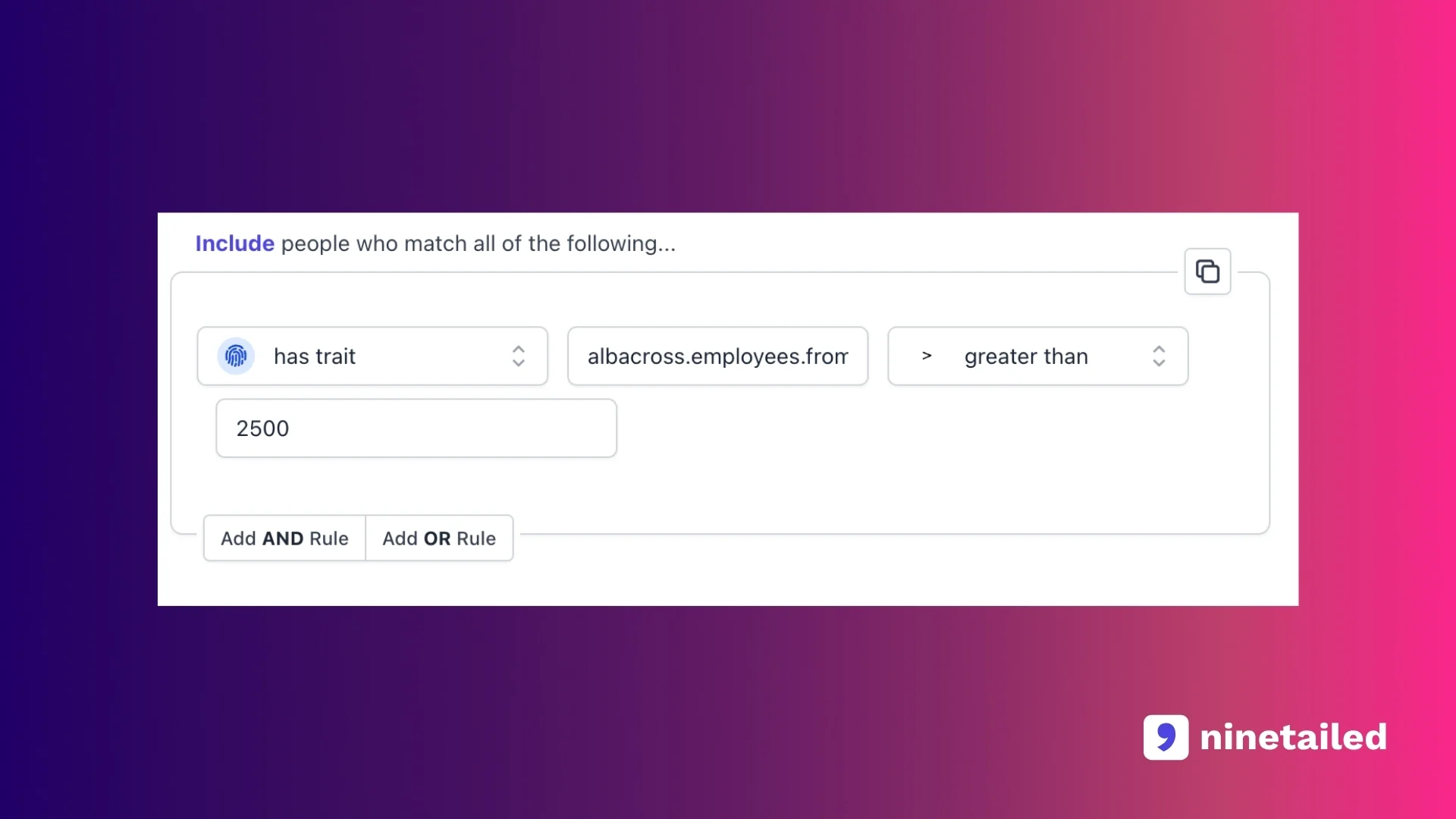- Segmentation
A Step-by-Step Audience Segmentation Inside Contentstack

Segmentation is the cornerstone of crafting personalized content that resonates with your audience. It's not just about casting a wide net; it's about understanding and reaching out to the right people, at the right time, with the right message. This precision is what makes your content truly impactful, driving engagement and inspiring action.
Throughout any campaign, you'll need to serve tailored content that aligns with your audience's interests, needs, and stage in the buying journey. But here's the thing - no two campaigns are identical. Each one demands its unique segmentation criteria, dictated by its goals, target audience, and nature of the message.
In this step-by-step guide, we're going to delve deep into the world of audience segmentation inside Contentstack. We'll unravel the rich, diverse criteria available for you to leverage and get hyper-focused on specific audiences. It's about fine-tuning your approach to ensure every piece of content hits home, whether you're targeting based on behaviors, location, or paid campaigns.
Before jumping to the details, here's a short video showcasing the audience segmentation with Ninetailed inside Contentstack:
By the end of this guide, you'll be equipped with practical, actionable insights to supercharge your content marketing efforts, making every personalized experience more effective, engaging, and successful.
Common Barriers to Effective Audience Segmentation
Audience segmentation is an invaluable tool in a content marketer's arsenal, allowing for the delivery of personalized and relevant content to specific audiences.
However, it's not always a walk in the park.
Several common barriers can hinder effective audience segmentation, making it difficult for marketers to leverage its potential fully. Let's delve into some of these barriers.
1. Lack of Quality Data: The foundation of audience segmentation is data. Without high-quality, accurate data about your audience's demographics, behaviors, interests, and needs, your segmentation efforts are likely to miss the mark. It's crucial to collect, manage, and analyze data effectively to create meaningful segments.
✅ With its built-in capabilities, Ninetailed empowers marketing teams to easily segment their audience based on page views, paid campaigns, UTM parameters, page properties, events, traits, location, device type, etc. with a couple of clicks and without the need for any other data source.
2. Poor Integration Across Channels: Your audience interacts with your brand across various channels. If your segmentation strategy isn't integrated across all these touchpoints, you might deliver inconsistent experiences, damaging your brand image.
✅ Ninetailed is built on composability and MACH architecture principles, enabling it to integrate with different customer data sources such as CDPs, CRMs, e-commerce data, intent data, firmographic data, data warehouses, etc.
3. Static Segmentation: Audience preferences and behaviors change over time. If you're not updating your segments regularly to reflect these changes, your content may become irrelevant. Dynamic segmentation that evolves with your audience is key.
✅ Ninetailed’s audience segmentation capabilities are dynamic. For example, if the profile changes location, interacts with different campaigns, or visits more pages, it can dynamically move from one audience group to another based on the rules you defined.
4. Limited Understanding of the Audience: Knowing basic demographic information about your audience isn't enough. You need to understand their motivations, pain points, and buying journeys to create segments that truly resonate. This requires ongoing research and customer engagement.
✅ Since Ninetailed can easily integrate with various customer data sources, this enables you to have better audience segments.
By understanding these challenges and how to overcome them easily, you can better navigate the world of audience segmentation, enhancing your personalized experiences and boosting ROI from your content and customer data investments.
How to Segment Audiences Inside Contentstack
Step 1: Define the Rules and Create the Audience Segment
Once you connect the Ninetailed with Contentstack, creating audience segments inside Contentstack with Ninetailed is very easy and straightforward for marketers, campaign managers, and content editors — it’s just like adding a new title or image to your homepage hero. All thanks to Ninetailed’s seamless integration into Contentstack.

With Ninetailed’s audience segmentation capabilities, you have full control over your customer data. You can easily define your audience segments based on:
page view
page property
paid campaigns and UTM parameters
referral
events
traits
location
device type

Step 2: (Optional) Enrich the Audience Segment with Your Data
Moreover, since Ninetailed is built on composability and MACH principles, enabling it to integrate with different customer data sources such as CDPs, CRMs, e-commerce data, intent data, firmographic data, data warehouses, etc. and with Ninetailed’s native integrations, you can also define and enrich your audience segments based on the customer data you have from other sources, such as:
Albacross — firmographic data provider
Shopify, BigCommerce, Commerce Layer, etc. — shopping data via Zapier
HubSpot — first-party CRM data via Zapier
Segment — first-party data in customer data platform

Our experts are here to help you with your specific use cases.
Step 3: (Optional) More Advanced Audience Segmentation by Combining the Rules
Ninetailed's audience segmentation capabilities provide powerful features to help you define and combine audiences based on specific conditions. You can easily take your audience segmentation game to the next level by using ‘and’ and ‘or’ operators to combine multiple conditions. This empowers you to create more advanced audience segmentation and gives you more power over audience segmentation.

The Bottom Line
In conclusion, mastering audience segmentation within Contentstack can significantly elevate your content marketing strategy.
By harnessing the power of these segments to deliver personalized experiences, you're not just making the most of your customer data and content investments - you're also boosting your return on investment.
This precision targeting leads to more engagement, higher conversion rates, and ultimately, a stronger bond with your audience.
One of the key advantages of doing this within Contentstack is the level of independence and control it offers. You don't need to constantly lean on your developers for assistance in creating or deploying these segments. This means faster execution, fewer bottlenecks, and more time for you to focus on crafting compelling, personalized content.
Furthermore, since all these processes occur inside Contentstack, there's no need to grapple with learning a new tool. This ease of use, combined with the platform's robust capabilities, enables you to scale your audience segmentation and personalization efforts seamlessly. As your business grows and evolves, your segmentation strategy can adapt and expand right along with it.
Get in touch to learn how Ninetailed personalization, experimentation, and insights works inside your CMS

